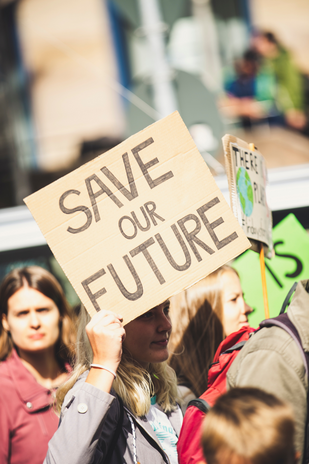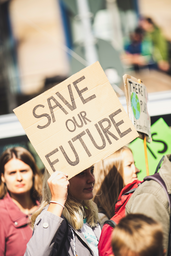Okay America, stop hating on Joe Biden for saying he’s going to transition away from “fracking.” Honestly, during the last Presidential Debate, when I heard President Trump say Joe Biden was going to ban fracking, I for once wished he wasn’t lying. Because Joe Biden is not in fact going to ban fracking. What he plans on doing is transitioning away from fracking and other pollutant sources of energy, such as coal and oil, so that by no later than 2050, America’s economy is reliant on clean energy and has net-zero carbon emissions. So, to everyone who’s up in arms, you can calm your tits and keep reading because ‘fracking’ might not be as amazing as you think.
In fact, some of the possible effects of ‘fracking’ have caught the eye of experts who are calling it a threat to human rights. ‘Fracking’ or hydraulic fracturing, is an extraction method of unconventional oil and gas. What that means is that the oil and gas are not concentrated in a pool, they are dispersed across a large area. So, in order to access unconventional oil and gas, other methods such as horizontal drilling and hydraulic fracturing have to be used. Fracking specifically is when high powered water and chemicals are injected into shale. An article published by the AAEA found that “unlike conventional extraction, hydraulic fracturing produces toxic and radioactive water” which can contaminate local underground water supplies and negatively affect people’s health. Besides negatively affecting people’s health, ‘fracking’ disrupts and destroys ecosystems, damages infrastructure, causes methane migration, and releases methane which has a global warming potential of between 28 and 36. To put the damaging effects of methane into perspective, carbon dioxide has a global warming potential of one (yeah, terrifying, I know). But part of the issue with the climate crisis is that it is cyclical. While fracking only negatively affects peoples’ health locally, environmental damage, like all environmental damages, affects people across the globe. Climate change causes desertification, ocean acidification, ice caps to melt and sea levels to rise, drought, extreme weather, and disrupt ecosystems endangering many species. All of these factors are the causes of displacement. The climate crisis is taking away people’s homes. It makes resources scarce and resource scarcity is one of the main causes of conflict.
Now, if you’re thinking along the same lines as me when I first started to learn about ‘fracking,’ you might be wondering, “why are we resorting to such a damaging process, and why is it being hailed as the bridge between fossil fuels and clean energy?” It’s because our sources of conventional fossil fuels are rapidly decreasing. While the world is consuming more and more fossil fuels under the guise of unstoppable technological advancement and industrial success, an article published in the International Journal of Human Rights found that “new discoveries of oil and natural gas liquids have dropped dramatically since their peak in the 1960s.” However, we as a society are so dependent on fossil fuels that not only are we threatening people’s human rights, but we are making the procurement of fossil fuels a national security issue and passing off fracking as a technology that will bridge our past reliance on coal and clean energy. To me, switching from coal to fracking and natural gas as our main generator of energy is like switching out Coca Cola for Sprite as your everyday drink, one is not significantly healthier than the other, they both contain sugar, or in this case, they both pollute the environment.
To begin unpacking that sweet metaphor, let me note that natural gas is similar to coal in that it is also a fossil fuel! While some scientists believe that natural gas is a slightly cleaner energy source than coal, it is by no means anywhere close to clean. Additionally, because ‘fracking’ is unearthing and collecting natural gas, a large percentage of which is made up of methane. Methane is also released during ‘fracking’, which keeps fracking from being a sustainable process.
The UN has published a global environmental alert about fracking, but many people are still working towards getting fracking banned and recognized as a threat to human rights. mong a plethora of other terrible negative effects, fracking can contaminate people’s water and water is a basic human need and therefore access to it should be a human right. While I’m hoping and manifesting the Joe Biden wins this upcoming election so our country’s perspective can finally shift towards sustainability, no matter what happens we as individuals also have the power to enact change. To start, I’ve been signing more petitions than ever and after listening to the debate the most recent one I’ve signed is a call to the UN to ban fracking. Whatever issues you’re passionate about, an easy first step towards getting involved is signing petitions, I encourage you to do some research and make your voice heard. <3



